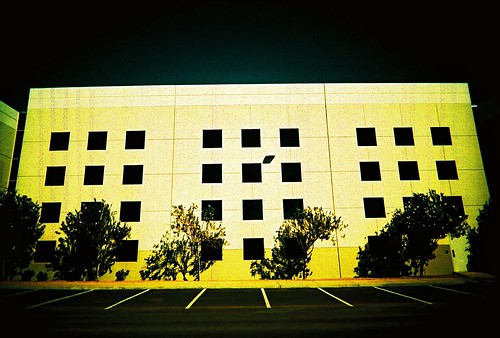Commercial real estate is another phrase for a property that produces income for business purposes. Some examples of this include hotels, rental units, shopping centers, or office buildings. You may be familiar with what it takes to get a traditional loan, but the process for obtaining a commercial real estate loan is much different. Requirements and terms are tailored toward this specific scenario, which means that a good background on the subject will help you navigate through the process better.
What Is a Commercial Real Estate Loan?

A commercial real estate loan is a type of mortgage secured by a piece of commercial property. These loans are generally granted to organizations or corporations or real estate investors such as partnerships, trusts, funds, developers, and real estate investment trusts (REITs). Commercial real estate is generally purchased for the purpose of leasing the space to collect rent from the property. You can get a commercial real estate loan from several different lenders, including Titan Funding.
How Does a Commercial Real Estate Loan Work?
Like with every type of loan, the lender assumes a certain amount of risk by providing borrowers with a commercial real estate loan. These loans are very different from other types of loans, such as home mortgages. Terms are typically shorter, ranging from just a few years to 20 years, with a longer amortization. Payments are generally made monthly, with a balloon payment at the end of the loan, where the entire balance of the loan is paid off.
If you’ve never obtained a commercial real estate loan before, you can expect down payments to range from 20% to 30% of the purchase price. Interest rates also tend to be slightly higher, depending on the size and the length of the loan.
Preparing for the Loan Application Process
The process of obtaining a commercial real estate loan can be long and requires quite a bit of documentation. There are also situations where the loan process can be faster, depending on how prepared you are. In general, you’ll need this information:
- Copies of your financial reports and records.
- Three or more months of bank statements.
- Tax returns for any current businesses.
- A third-party property appraisal.
- A business plan.
- The information and details regarding your collateral for the property.
Consulting with the right team of professionals, such as those at Titan Funding, will allow you the guidance to obtain the information you need.
Tips To Improve Your Chances of Approval
If you’re applying for a commercial real estate loan, there are a few things that you can do to help boost your approval odds. These include:
- Selecting a property that isn’t too expensive.
- Offering additional collateral.
- Applying with a cosigner or another investor.
- Agreeing to pay a higher interest rate or larger down payment.
- Improving your credit score by paying off some of your existing debt if your score is less than stellar.
How To Get a Commercial Real Estate Loan
The process of obtaining a commercial real estate loan can be more complex than a traditional loan. The first thing you should do is find yourself a property that works for your budget and needs. Research is key here. Market research — examining area vacancy rates, crime rates, and other factors that will impact future growth — should be able to help you determine if the area and property you’re considering will be a wise investment. Next, you should review the requirements that your specific lender has requested. You’ll then need to submit your financial package proposal and choose your loan product.
Types of Commercial Real Estate Loans
Depending on your needs and those of your business, you’ll be able to choose from several primary types of commercial real estate loans. Here are the types and their purposes to help narrow down which is better for you.
- Permanent Loans. This is the first loan on a commercial property and is a good option if you’re not looking for a short-term financing solution.
- SBA Loans. Small Business Administration loans come in the form of two programs. First is the SBA 7(a) Program, which is more general and offers business owners flexibility in using their loan funding. Second is the SBA 504 Program, which outlines that funds must be used to purchase real estate, machines, equipment, or to renovate an existing property. They can also be used to refinance a different commercial real estate loan.
- Bridge Loans. A bridge loan is a short-term commercial real estate loan. Repayment terms range from six months to three years. This type of loan is suitable for those looking to fix up and then sell a property or by someone who is waiting for long-term financing.
- Hard Money Loans. Real estate investors often use these loans. They’re a short-term financing option issued by private companies. Terms typically range from three to 36 months.
Pros and Cons of Commercial Real Estate Loans
When considering a commercial real estate loan, you’ll need to weigh the pros and cons in order to make the best decision for you and your needs. Pros of commercial real estate loans include:
- Variety of loan terms, including flexible repayment terms, interest rates, and payment schedules.
- Tax breaks for the real estate owner.
- Equity to add value to your business.
Cons of commercial real estate loans include:
- High upfront costs due to the down payment.
- Lengthy approval process.
- High risk to lenders, which may impact your loan terms.
Reach Out to Titan Funding Today
If you’re ready to venture out and see what a commercial real estate loan can do for your business, reach out to Titan Funding today for help. Our team of experts can provide you with more options, help you discover which type of loan is best for you, and guide you through the entire process. You can reach us by sending a message online or by calling 855-912-8313. We have the knowledge and experience you need and look forward to working with you on your next investment adventure.

